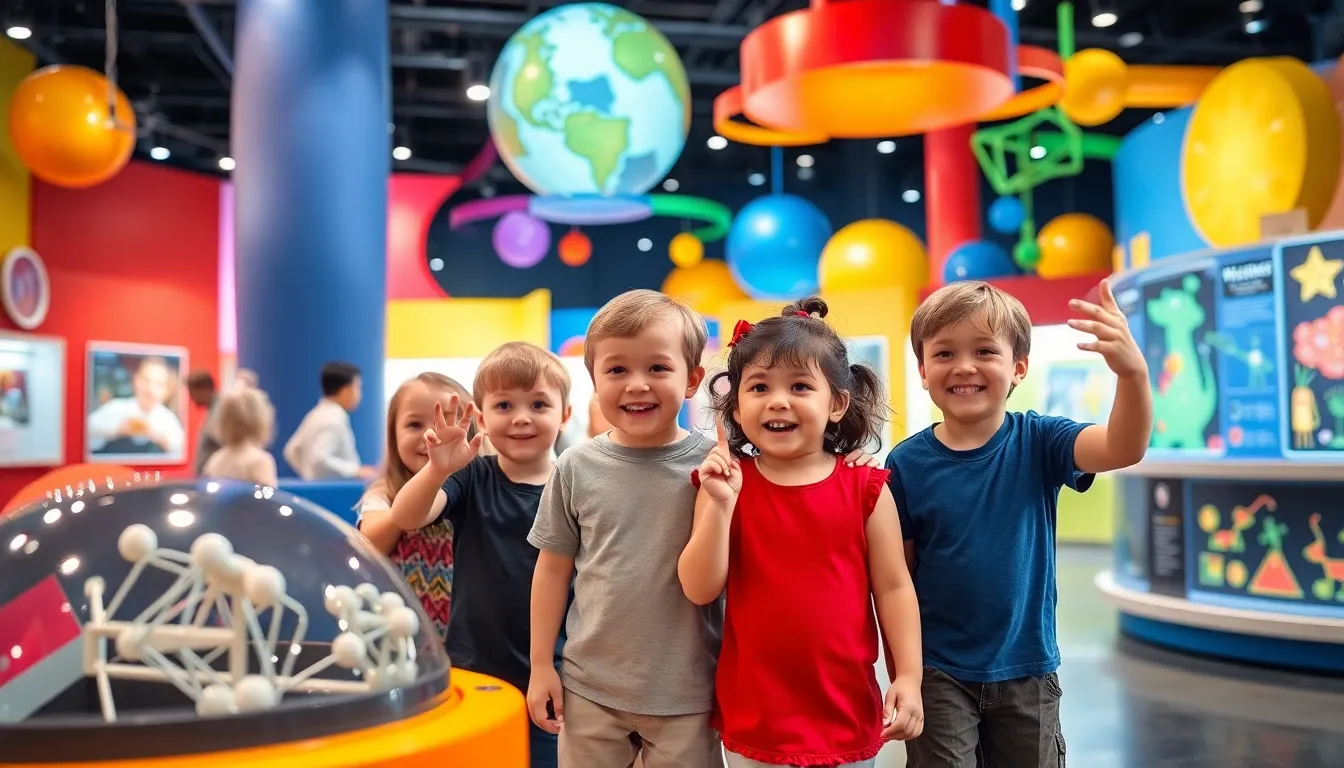Table of Contents
ToggleExploring the world outside the classroom is essential for toddlers’ development. Field trips offer young children a chance to engage with their environment in fun and educational ways. These outings spark curiosity and foster a love for learning that lasts a lifetime.
From visiting local farms to exploring museums, toddler field trips provide hands-on experiences that enrich their understanding of the world. Parents and caregivers can create memorable adventures that stimulate imagination and creativity. By stepping outside their usual surroundings, toddlers gain valuable social skills and discover new interests.
Planning the perfect field trip can seem daunting, but with a bit of preparation, it can be a rewarding experience for everyone involved. Discovering the right locations and activities can turn an ordinary day into an extraordinary journey of discovery.
Importance Of Toddler Field Trips
Toddler field trips play a crucial role in early childhood development. These experiences foster engagement with the surroundings, enhancing learning through exploration and hands-on activities.
Developmental Benefits
Field trips provide numerous developmental benefits for toddlers. Exposure to new environments stimulates curiosity and promotes cognitive development. Activities like observing farm animals or exploring museums enhance sensory experiences, helping with language acquisition. Engaging in these outings supports fine and gross motor skills through interactive tasks such as jumping, climbing, or handling objects. Consistent exposure to diverse experiences builds a foundation for critical thinking and problem-solving skills in everyday situations.
Social Interaction Opportunities
Field trips create valuable social interaction opportunities for toddlers. These outings encourage cooperation and teamwork among peers, as children learn to share experiences and ideas. Interacting with others helps develop communication skills, as toddlers practice expressing thoughts and feelings more effectively. Additionally, field trips offer chances to engage with adults—like educators and guides—who introduce new vocabulary and concepts. Forming new friendships during these activities fosters a sense of belonging and enhances emotional development.
Types Of Toddler Field Trips

Field trips can occur in various settings, each offering unique experiences that promote learning and growth. Below are categories of toddler field trips that provide enriching opportunities for young children.
Educational Locations
Educational locations include museums, zoos, and science centers. These venues offer interactive exhibits and activities designed for young audiences.
- Museums: Many museums host family-friendly exhibits that encourage exploration and discovery.
- Zoos: Zoos provide hands-on learning about animals and their habitats, often featuring interactive displays.
- Science Centers: Science centers engage toddlers through experiments and demonstrations, sparking an interest in science.
These settings enhance cognitive development while fostering a love for learning.
Nature Outings
Nature outings focus on outdoor exploration and appreciation of the environment.
- Parks: Local parks provide opportunities for toddlers to observe plants and animals in their natural habitats.
- Botanical Gardens: Gardens showcase diverse plant species, offering sensory experiences through colors and scents.
- Nature Trails: Nature trails allow young children to hike, discover, and learn about local ecosystems.
These experiences strengthen observational skills and promote physical activity.
Community Events
Community events offer chances for toddlers to engage with their surroundings and peers.
- Farmers’ Markets: Markets allow toddlers to interact with local farmers, learn about fresh produce, and participate in activities.
- Libraries: Libraries often host storytime sessions and educational programs designed for young visitors.
- Festivals: Local festivals provide various cultural experiences, performances, and hands-on craft activities.
These activities promote social skills while connecting toddlers to their communities.
Tips For Planning Toddler Field Trips
Planning toddler field trips requires careful consideration to ensure a safe and enriching experience. Below are key factors to focus on when organizing these outings.
Safety Considerations
- Supervision Ratios: Maintain a supervision ratio of one adult to three toddlers. This ensures adequate attention and care during the trip.
- Emergency Plan: Prepare an emergency plan with clear procedures for various scenarios, like losing sight of a child. Include relevant contact information and first aid resources.
- Transportation Safety: Use age-appropriate child safety seats and ensure all vehicles meet safety standards. Verify that all adults driving are licensed and experienced.
- Allergy Awareness: Identify any allergies among toddlers and ensure snacks and activities accommodate these needs to prevent reactions.
- Accessible Locations: Choose destinations with facilities that accommodate strollers and mobility challenges, ensuring all toddlers can enjoy the field trip.
Engaging Activities
- Interactive Learning: Choose locations with hands-on activities, like touch tanks at aquariums or artifact handling sessions at museums. These experiences promote active learning.
- Nature Exploration: Organize scavenger hunts in parks or botanical gardens. These activities encourage discovery and enhance observational skills.
- Creative Play: Incorporate craft stations during community events. Allow toddlers to create art related to their experiences, reinforcing learning through play.
- Group Games: Include simple group games that promote teamwork and social interaction, such as “Duck, Duck, Goose” or parades.
- Storytime: Plan for group readings tied to the trip, reinforcing knowledge through storytelling, whether in libraries during visits or outdoors in nature settings.
Challenges And Solutions
Field trips can present unique challenges, particularly with toddlers. Handling tantrums and managing group dynamics are critical aspects to ensure a successful outing.
Handling Tantrums
Handling tantrums during field trips requires proactive strategies. Implementing clear communication helps set expectations before the trip. Engaging toddlers in discussions about what to expect creates enthusiasm and reduces anxiety. Scheduling regular breaks is essential; toddlers benefit from short downtime to recharge. Packing comforting items, such as a favorite toy or blanket, aids in providing reassurance. Recognizing triggers and maintaining calmness promotes a supportive environment. Utilizing distraction techniques, such as games or songs, effectively shifts focus during moments of distress.
Managing Group Dynamics
Managing group dynamics is vital for smooth field trip experiences. Establishing clear roles for adults enhances supervision and support. Dividing toddlers into smaller groups allows for more manageable interactions. Promoting peer engagement through cooperative activities encourages friendships and teamwork. Establishing rules for behavior before and during the trip sets clear expectations. Utilizing positive reinforcement helps reward desired behaviors, creating a more harmonious group atmosphere. Encouraging sharing and communication among toddlers fosters social connections and reduces potential conflicts.
Toddler field trips are invaluable experiences that contribute significantly to early childhood development. These outings not only foster curiosity and creativity but also enhance social skills through interactive engagement. By choosing the right locations and activities, caregivers can create memorable adventures that stimulate learning and exploration.
Planning is key to a successful trip. With the right preparation and strategies in place, caregivers can navigate challenges and ensure a safe and enjoyable experience for toddlers. Ultimately, field trips provide a unique opportunity for young children to connect with the world around them while developing essential skills that will benefit them throughout their lives.




